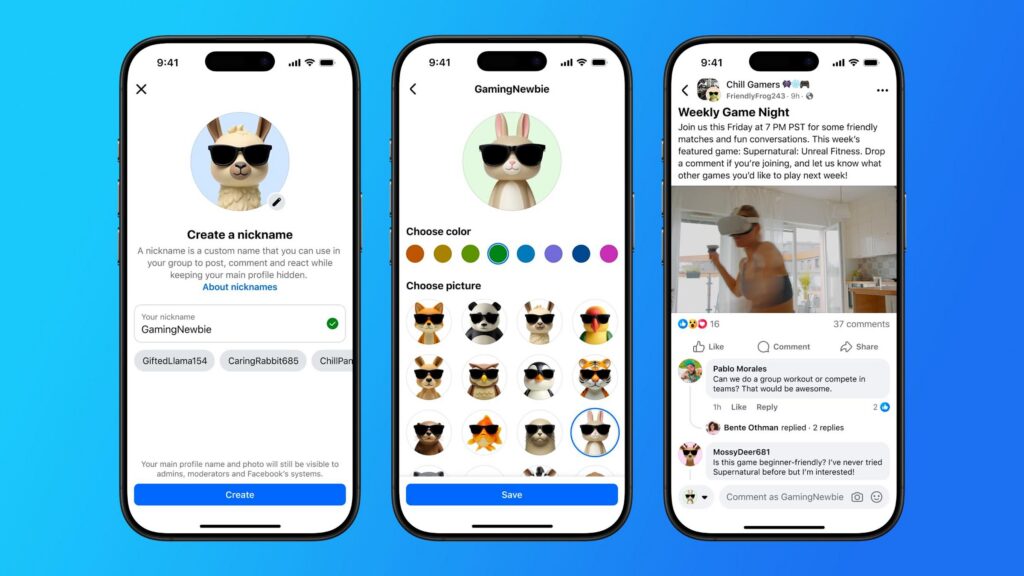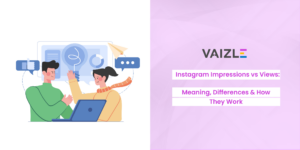Facebook Groups now let you post with a nickname and that changes a lot
Meta just added nicknames to Facebook Groups. Learn what this change means for trust, privacy and honest conversations in your brand community.
Facebook Groups are home to over 1.8 billion people each month, covering everything from hyper-local communities to global niche interests. But for a platform known for connection, many of these groups have struggled with participation. The core reason behind this silence has finally been addressed.
Meta has begun rolling out a new option in Facebook Groups that lets members post under a group specific nickname and avatar instead of always using their full profile name and photo. This change is meant to make participation feel more comfortable for people who want to join conversations without putting their entire personal identity in front of every post.
Why is this a big deal? Because, for years, Facebook has maintained a very strict real name policy, where “everyone uses the name that they use in everyday life.” This lack of anonymity meant people joined groups as spectators and headed to Reddit or Discord for actual conversations.

Why real names kept many members quiet?
Facebook has emerged into this vast group of people, where you’re connected with friends, colleagues, relatives, neighbours, and so on.
People hesitated while discussing sensitive topics such as burnout, health concerns, client problems or personal finances. Even inside private Groups posting (under a full name and recognisable profile image) often felt risky.
Other community platforms took a different path. Reddit and Discord rely on usernames and avatars as the default, which creates a small amount of distance between the person and what they share. That model lets people build a reputation inside a community without revealing everything about their offline identity. As Groups brought more strangers together on Facebook, the original real name rule started to feel out of step with how people participate in online communities today.
How the new nickname feature works inside Facebook Groups?
With the new feature, members can create a nickname and select a separate image that only apply inside a specific Group. Once this is set, posts, comments and reactions in that Group show the nickname profile, while the underlying Facebook account remains visible to Meta and to Group admins and moderators.
This creates a middle ground between full profile exposure and fully anonymous posting, which already exists in some communities.
Members will see the nickname option alongside the existing anonymous posting toggle when they create a post, and they can switch the nickname on or off at any time. Group admins keep control over whether nicknames are allowed and can require approval before a new nickname goes live, which lets them enforce community rules around names and images.
Another pointer to keep in mind: all your group engagement history is attached with your username and will be transferred in case of username change as well.
Also, users won’t be able to use nicknames to use these features: live video, content sharing, private messaging, and so on.
For anyone who struggles to find a name that fits a particular community, third party tools such as Vaizle’s simple username generator can help them brainstorm ideas, though the feature itself does not depend on any external service.
What this shift means for communities and brands?
For everyday members, the change lowers the barrier to asking honest questions or sharing uncomfortable experiences, while still keeping a consistent presence that other members can recognise inside a Group.
For brands and community managers, it may lead to more active discussions in spaces that previously had many silent readers and very few posts. If you want to a Group around your product or service, our guide on how to create & use Facebook Groups for your brand explains it all.
Bottomline
The introduction of nicknames does not end Facebook’s commitment to real identity, but it does signal a meaningful adjustment. Meta is acknowledging that people move through different communities with different comfort levels, and it is giving them more control over how much of themselves they bring into each room.
Get the latest marketing news and trends
Delivered straight to your inbox.
Thank you for subscribing!
Stay tuned for the latest updates.
If you’ve been running Meta ads for any length of time, you...
If you’ve been on Tech Twitter or browsing GitHub in the last...
OpenAI came up with two new announcements in past 24 hours, and...
TL;DR Member tags: Add a short label for yourself inside a specific...




